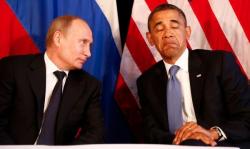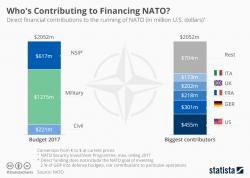Martin Schultz Wants To Give Refugees The Right To Vote In German Election

Submitted by Martin Armstrong via ArmstrongEconomics.com,

Submitted by Martin Armstrong via ArmstrongEconomics.com,

In China's latest test of the US response to its escalating claims of islands in the South China Sea, Reuters reports that Beijing has "nearly finished building almost two dozen structures on artificial islands in the South China Sea that appear designed to house long-range surface-to-air missiles." Predictably, such a development will likely raise questions about whether and how the United States will respond, given its vows to take a tough line on China in the South China Sea. The structures appear to be 20 meters (66 feet) long and 10 meters (33 feet) high.

Submitted by Eric Zuesse via The Strategic Culture Foundation,
The Gallup organization samples Americans’ approval-disapproval of Russia in February of each year, and the approval-figure for this year is only slightly more than half as high as it had been back in 2012 when Obama publicly mocked his Presidential-campaign opponent Mitt Romney’s famous statement that «Russia, this is, without question, our number one geopolitical foe».

While the U.S. outspends all NATO allies when it comes to overall defence spending in relation to her GDP, Statista's Dyfed Loesche notes - and President Trump is very well aware of - the U.S. is also the prime direct financer of NATO.
However, direct contribution are more evenly split between the major NATO powers. Germany for example, spends only 1.19 percent of her GDP into defence (USA = 3.61 percent) but seemingly pulls its weight when it comes to direct funding of NATO. This does not include contributions to particular military operations.

Submitted by Alice Salles via TheAntiMedia.org,
The 2016 Summer Olympics in Brazil cost Brazilian taxpayers $4.6 billion, conservative estimates show. But once related expenses covered by the Brazilian government are factored in, the overall costs hit the $12 billion mark, which equates to about 0.72 percent of Brazil’s national budget.